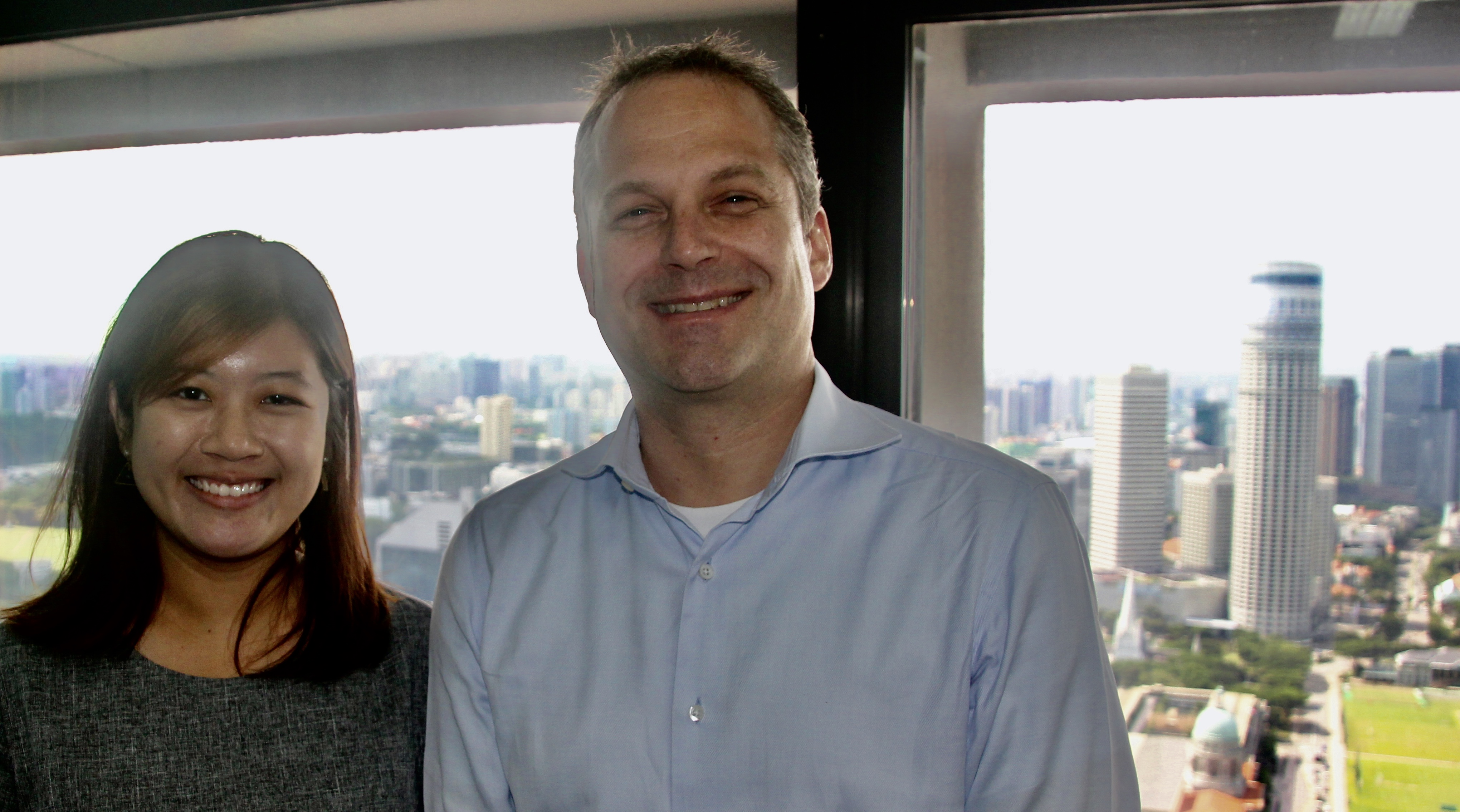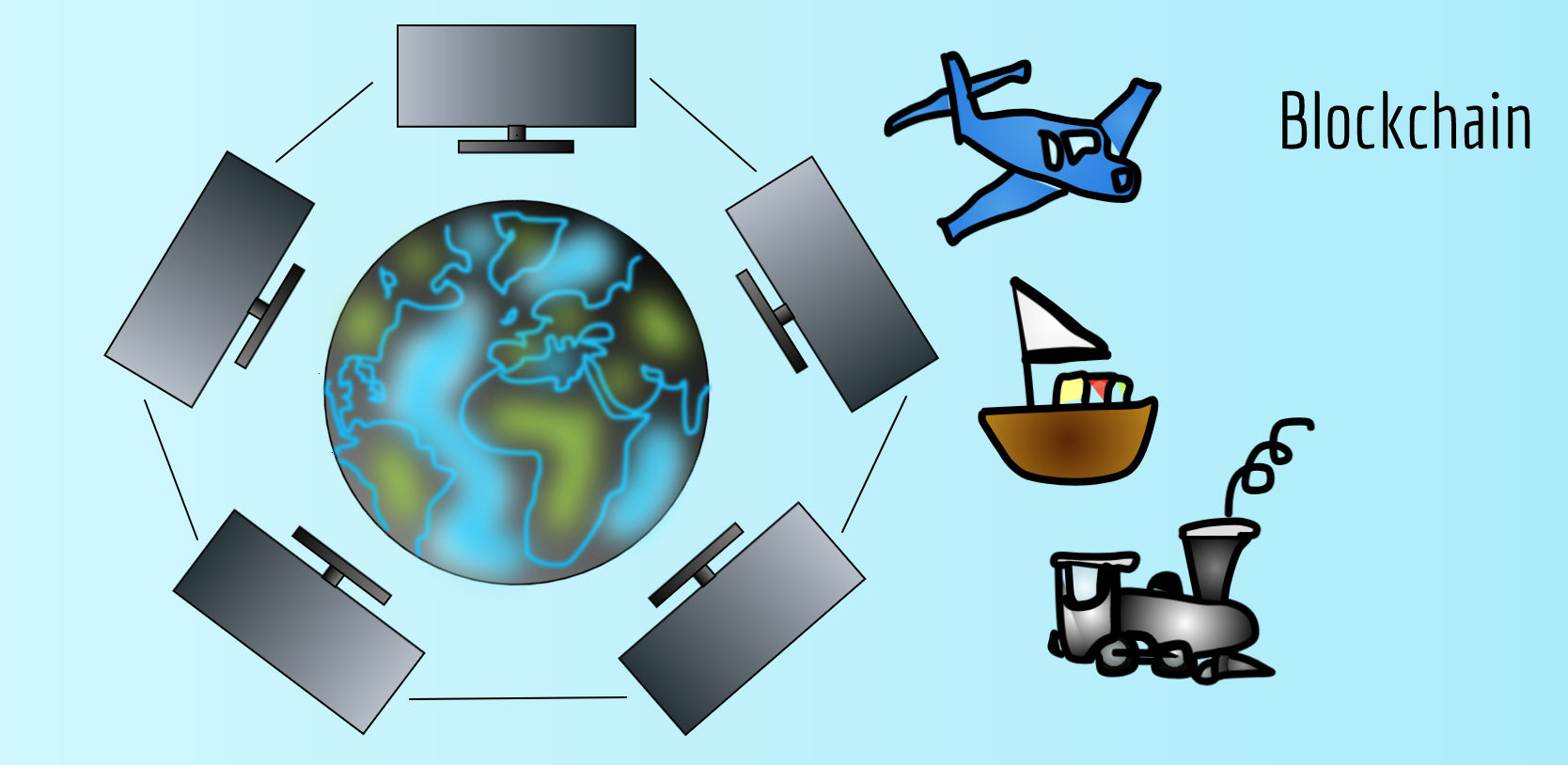
Blockchain is one of the most hyped technology concepts of our time. The possible future of all technologies. The new internet. Still, many companies have very little understanding of how to incorporate the technology in a way that makes sense – considering the challenges within blockchain – so the industry demands knowledge. This is where BiTA enters the picture.
Blockchain is perhaps the most powerful innovation, associated with the cryptocurrency Bitcoin, as countless industries from financial services to healthcare have begun to consider how to utilize the technology for their own applications. But the companies and institutions need more knowledge. BiTA – Blockchain in Transport Alliance – opened its Asia office in Singapore last month. Counting over 400 members, including Asian and Oceanian countries, the standards organisation has great expectations for its entry in Asia.
The BiTA Asia office is run by Danish Managing Director Soeren Duvier and Sales Manager Jana Lee. There is a need for development and innovation for blockchain technology to truly succeed. BiTA provides forums for exactly this.
So, what is blockchain? The decisive factor in blockchain technology is its ability to distribute information. It has a decentralised and verifiable nature which saves and secures data on several continuous blocks – each block having its own “fingerprint” as well as the “fingerprint” of the previous block. You may think of it as an e-notary with the ability to protect data and prevent it from being tampered with. This makes the technology extremely safe and therefore attractive to many industries – if not all.
“A core belief at BiTA is that a market is only as strong as its educational foundation.”
These are the words greeting you when surfing BiTA’s website. And education truly is the purpose of the organisation. Blockchain technology is trending. Major companies in all kinds of industries draw attention to their specific use of blockchain. Still, you may question the net value of blockchain of today – due to the many challenges within the technology.
“Blockchain has been trending the last three to four years, but at the moment, many of the solutions are about generating buzz or siloed within one company. It is still early days; however, the potential is there for a quantum leap in process improvement,” Duvier states. “When you have an organization creating a forum for the development of standards, you want as many members as possible to set the benchmarks for the industry. I have some background in shipping. Moving things from A to B will not see a 90 percent cost reduction because you change your database to a DLT setup. However, it will lower the overall costs if the entire industry uses the same standards and change business practices.”
The industry asked for an Alliance
BiTA was originally founded one year ago in the U.S. upon a demand for knowledge about blockchain from the supply chain industry. The Alliance creates a forum to those who want to be a part of setting standards for blockchain technology within the industry.
“BiTA has no interest in imposing standards on our members. We actually want to hold-back a bit to ensure that our standards are some all of members, and industries, can agree on. BiTA’s focus is on the value blockchain technology can bring to the supply chain and to differentiate it from those using blockchain solely for cryptocurrency,” Duvier explains.
The Asian region contains a massive potential for BiTA and it is no coincident Singapore was chosen as base for the organisation. The country not only constitutes the trade hub of Asia. Singapore is additionally one of the world’s most important countries when it comes to the supply chain industry.
“There is a lot of potential in the supply chain industry. Supply chain is used in most industries –probably in every industry,” Lee explains.
A blockchain’s database is not kept in a single location – which could be infiltrated or controlled by a single party – but rather hosted by numerous computers at once. This creates several challenges to which there is no clear solution. Yet. The challenges include large-scale energy demands that burden the environment, slow transaction speed, and the lack of regulation which creates a risky environment.

“Using the shipping companies as an example, they would be looking for solutions concerning large amounts of documentation and payments and keeping track of their ships. We can help them by bringing them together with people from the tech industry and other members. And we can help by creating standards. That makes us unique,” Duvier states.
For BiTA it is most important that the members set the standards. This also meaning BiTA will not be making demands but rather facilitate a forum for the discussion of these challengers, allowing the members to make the demands. If they so wish. Talking about the environmental burden blockhcain generates, Duvier states:
“That is not something we are put in the world to solve, but something we are put in the world to draw attention to.”
Standards will be developed – but who will create them?
The development of standards is an attempt to systematise and make the entire industry comparable when it comes to blockchain.
“Historically, there have always been developed standards over time in all industries. Whether it is shipping or agriculture or finance. Sometimes the states regulate first, and that is not always favourable for the companies,” Duvier explains.
According to Duvier, who has 25 years of operational and commercial experience in the shipping, energy, and commodity markets, it could be an issue if the states were to regulate first. Different countries would prefer different solutions and varying regulations would complicate the process of streamlining standards internationally.
BiTA – at the same time – is an Alliance. 16 council members need to agree on all decisions. This makes the process of creating standards for the industry slow. The real challenge will be bringing together members with varying levels of interest and involvement and ensuring that BiTA remains relevant to, and representative of, all.
Duvier explains that BiTA can act as a neutral body engaging with various governments.
“If the states have any concerns or issues to be resolved, then we will be part of that solution too,” Duvier states.
In spite of the unresolved challenges, the potential in blockchain technology is undeniable. Solutions can be found. The question is how fast and by whom.

